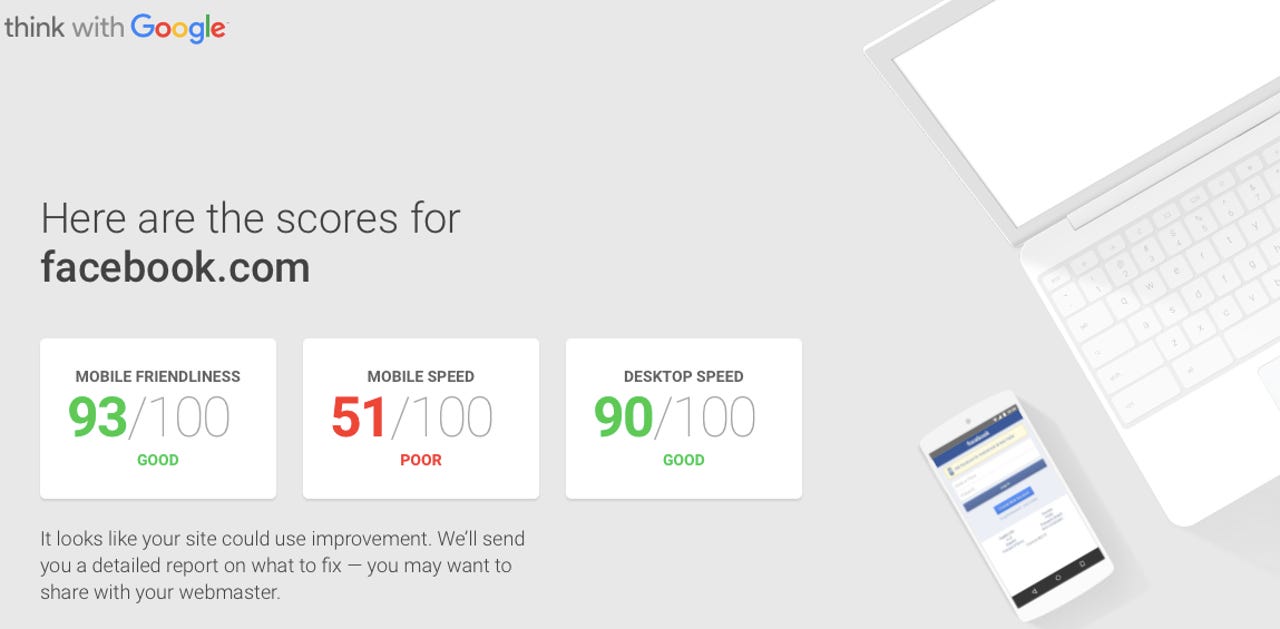Does your website suck on mobile? Find out using Google's free new tool


Google's new tool shows how fast a site runs across mobile and the desktop, plus its mobile friendliness.
Google has rolled out a new free online tool that tests how good or poor your website is for mobile devices, and then provides detailed recommendations on what to fix.
The new Test My Site service, hosted by Google's marketing-focused Think With Google, is the company's latest effort to encourage businesses to make their sites more mobile-friendly. Just type in the URL for a homepage and it will return a score out of 100 for mobile friendliness, mobile speed, and desktop speed.
Google says that people are five times more likely to leave a website that's not easy to use on mobile and that half of all visitors will ditch a page if it takes more than three seconds to load.
The site also produces a report outlining whether the site, buttons, and content are sized to fit mobile screens, as well as whether it's configured to support compression, browser caching, and optimize images.
The reason for the desktop test is that 90 percent of people say they use multiple screens for tasks such as buying air tickets or managing personal finances, according to Google.
While the test site is aimed at encouraging small businesses to adapt their sites to mobile, even the world's largest tech companies, which could be leading by example, often fail.
As The Next Web pointed out, Google initially failed its own test. Google.com scored perfectly for mobile friendliness and mobile speed, but landed a poor 69 out of 100 for desktop speed. But whatever caused that low score appears to have now been fixed, with Google scoring 100 across all three measures.
Test My Site also found problems with Facebook.com, and offered advice on how to fix its poor mobile speed. YouTube.com apparently is also poor on mobile speed. Both sites need to avoid landing-page redirects, and "eliminate render-blocking JavaScript and CSS in the above-the-fold content", while YouTube additionally needs to prioritize visible content and use browser caching. One site that did score well on all counts was Microsoft's bing.com, however.
Google reported that mobile searches outnumbered those conducted on desktops for the first time in October 2015.
Having seen that tipping point coming, it had already been labelling sites as mobile-friendly for a year, and in April 2015 adjusted its search algorithm to push up mobile-friendly sites. In March it increased the effect of mobile-friendliness as a ranking signal in mobile search.
Another major mobile effort Google expanded on Thursday was its AMP or Accelerated Mobile Pages technology for Google News on the web, iOS and Android.
The US English edition of Google News gained AMP support in April and yesterday Google switched it on for Google News for France, Germany, Italy, UK, Russia, and Mexico.